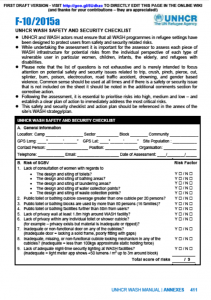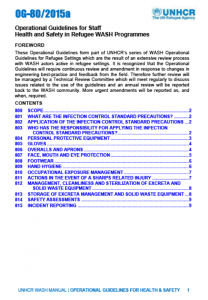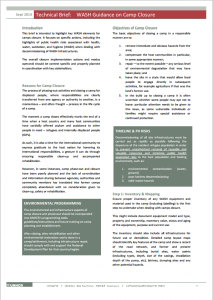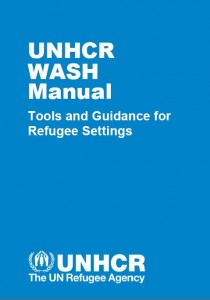
This document has been designed to help UNHCR and WASH actors assess potential WASH related safety and security issues related to trip, crush, pinch, pierce, cut, splinter, burn, poison, electrocution, road traffic accident, drowning, and gender based violence.

This document provides health and safety guidelines for refugee WASH programmes for staff are involved in either: cleaning of toilets; maintenance of toilets; desludging of toilets; the collection and movement of excreta; the collection or movement of solid wastes; the handling of vector control or water treatment chemicals; any staff who may potentially come into contact with excreta, sewage, wastewater, solid waste, medical waste or any other sources of (potential) infection.

This brief is intended to highlight key WASH elements for camps closure. It focuses on specific actions, including the highlights of public health risks associated with health, water, sanitation, and hygiene (WASH) when dealing with decommissioning of WASH infrastructures. The overall closure implementation actions and modus operandi should be context specific and properly planned in coordination with key stakeholders.
Tags: Camp Closure, Cross Cutting, Environment, Excreta Management, Solid Waste Management, WASH Coordination, WASH Programme Health and Safety, WASH Programme Management, WASH Strategy Development, and Water Supply. Languages: English. Organisations: UNHCR. Categories: WASH Guidelines, WASH Operational Guidelines, WASH Policy Guidelines, and WASH Reference Documents.
 English
English





